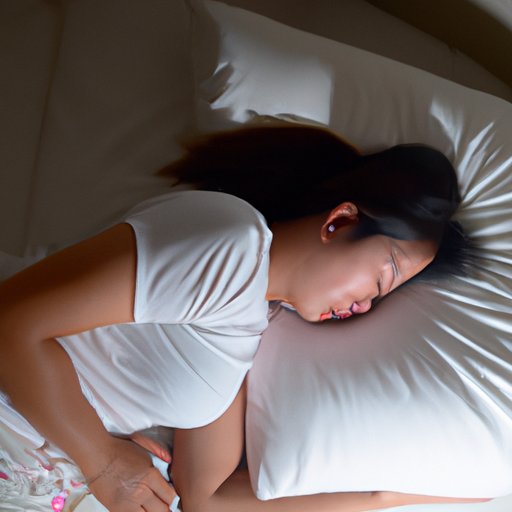
Introduction
Have you ever woken up in the middle of the night drenched in sweat, unable to figure out why? If you’re experiencing night sweats, stress could be the culprit. Stress affects many aspects of our health, including our sleep, and can lead to a host of unpleasant symptoms, including night sweats. In this article, we’ll explore the connection between stress and night sweats, and provide strategies for managing these symptoms so you can get a restful night’s sleep.
The Science of Night Sweats: A Comprehensive Look at How Stress Affects Your Sleep
Night sweats can be frustrating and uncomfortable, and can wreak havoc on our sleep quality. These episodes are characterized by excessive sweating that occurs during sleep, and can result in waking up hot, sweaty, and sometimes even chilled. Our bodies go through a natural temperature regulation process during sleep, which involves cooling down in order for us to fall and stay asleep. When stress is present, this regulation process can be disrupted, leading to night sweats.
Understanding the Connection Between Stress and Night Sweats: The Key to a Restful Night’s Sleep
Stress can cause a variety of symptoms, including headaches, muscle tension, and anxiety. It can also trigger night sweats by causing our bodies to release hormones that increase our heart rate and respiration, leading to a rise in body temperature. In addition to stress, other factors that can contribute to night sweats include certain medications, hormonal changes such as menopause, and medical conditions such as hyperthyroidism. However, managing stress is a crucial component to reducing night sweats and improving overall sleep quality.
Can Stress Really Cause Night Sweats? What Health Experts Say About This Common Phenomenon
Research has confirmed that stress can indeed lead to night sweats. A study published in the journal Menopause found that women who experienced high stress levels were more likely to experience night sweats and other sleep disturbances. Additionally, health experts have acknowledged the connection between stress and night sweats, and highlight the importance of addressing stress in order to improve sleep quality.
Night Sweats and Stress: How to Identify the Symptoms and Ways to Manage Them
Symptoms of night sweats caused by stress can include excessive sweating, feeling hot or cold, and disrupted sleep patterns. In order to manage these symptoms, it’s important to prioritize stress management techniques. Relaxation techniques such as deep breathing and meditation can help calm the mind and reduce stress levels. Exercise is also an effective way to reduce stress and promote better sleep. In some cases, medication or hormone therapy may be necessary to manage night sweats caused by menopause or other medical conditions.
From Insomnia to Night Sweats: How Stress Affects Your Sleep and What You Can Do About It
Stress has a significant impact on our sleep quality, and can lead to a range of unpleasant symptoms, including insomnia and night sweats. However, there are a variety of strategies that can be used to manage stress and improve sleep quality. In addition to relaxation techniques and exercise, maintaining a consistent sleep routine, avoiding caffeine and alcohol before bed, and creating a calming sleeping environment can also be helpful. By prioritizing stress management and developing healthy sleep habits, you can reduce the occurrence of night sweats and enjoy a restful night’s sleep.
Conclusion
Night sweats caused by stress can be frustrating, but they are a common phenomenon that can be managed through effective stress reduction techniques and healthy sleep habits. By understanding the connection between stress and night sweats, and prioritizing stress management in your daily routine, you can enjoy better sleep and overall health.





